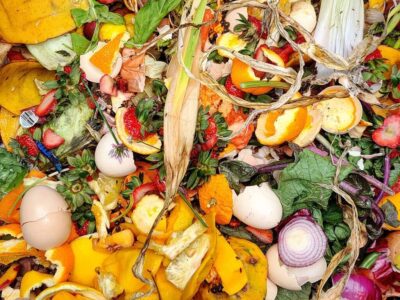
We recently reached out to SUMA faculty members to get their perspective on the history of the program, and how COVID-19 has impacted their courses. In March, Columbia University courses—including SUMA courses—moved online. This fall, courses have been offered both online and in the “hy-flex” modality, where students participate virtually and in the classroom according to social distancing guidelines. The faculty members’ responses reveal the challenges and opportunities that this new learning environment presents.
The importance of sustainability
George Sarrinikolaou, director of the Earth Institute’s Office of Academic and Research Programs, said, “The pandemic is helping us think concretely about the importance of sustainability. The global spread of the virus exemplifies an interaction between a natural system and an economic system — between nature and people — that has gone badly awry. As sustainability managers, our objective is to try to manage such interactions in ways that preserve environmental quality and yield prosperity.”
Sarrinikolaou noted that while the new hy-flex model, which allows students to participate in the classroom or remotely, has complicated teaching. “It has also provided opportunities to experiment with new ways of doing things,” he added.
New opportunities
In a recent State of the Planet post, Professor Claudia Dreifus shared that she has made “lemonade from situational lemons” with students in her Writing About Global Science for the International Media course. As many of her students returned home to complete the semester, they relied on their new locations (from Roosevelt Island to Singapore) to inform their reporting. While the shelter-in-place order compromised many students’ ability to go into the field and conduct face-to-face interviews, SUMA students quickly discovered that more high-profile sources were available for interviews as almost everyone was stuck at home with more time to pick up the phone.
Other instructors developed creative ways to reconfigure field trips and in-person exercises. Professor Lynette Widder, who teaches SUMA students about community resilience, traditionally collaborates with a nearby community confronting challenges to environmental, economic and social resilience. Professor Widder would accompany students on a weekend field trip to the location, to meet with community activists and leaders and work with architecture students to design solutions.
With travel not allowed this year, Professor Widder and her colleagues had to find other means of collaboration. With support from an Earth Institute grant, Professor Widder and her class collaborated virtually with three far-flung communities facing three different kinds of environmental resilience threats: Highlands, NJ, the Beaubien Woods neighborhood in Chicago, and Ballona Wetlands neighborhood in Los Angeles. Half a day was devoted to presentations from academics, local government officials, community activists, ecologists, and not-for-profit actors from across the U.S. For the remaining day and a half, students worked via collaboration software across three different Zoom rooms.
Professor Widder noted, “Amazingly, in a way I never could have foreseen, we were all able to make a virtue of necessity. It was a bit of much needed good news in a generally dire landscape of events.”
Student strengths
When Professor Christoph Meinrenken transitioned from teaching his Life Cycle Assessment course in the Engineering School to the SUMA Program in 2018, he found that SUMA students were “eager to learn, eager to network, and eager to help each other out in the daily stress called graduate school.” Come Spring 2020, Professor Meinrenken shared that it was likely these SUMA traits that made the transition to new learning modalities “relatively painless and successful,” adding, “we all owe the students a big thank you for making this work.”
With Fall 2020 classes underway, SUMA students, faculty, and staff continue to adapt to their changing learning environment while seizing the opportunities it presents. Balancing the chaos of a global pandemic with the demands of academic life, members of the SUMA community have shown that they possess the resiliency, creativity, as well as a sense of responsibility to confront the most pressing issues of our time.
Celebrating its tenth anniversary in 2020, the M.S. in Sustainability Management program, co-sponsored by the Earth Institute and Columbia’s School of Professional Studies, trains students to tackle complex and pressing environmental and managerial challenges. Visit the website to learn more.
Frederique Fyhr is an intern for the Graduate Programs in Sustainability Management and Science at the Earth Institute, Columbia University. She is a sophomore pursuing a major in Sustainable Development in Columbia College.







